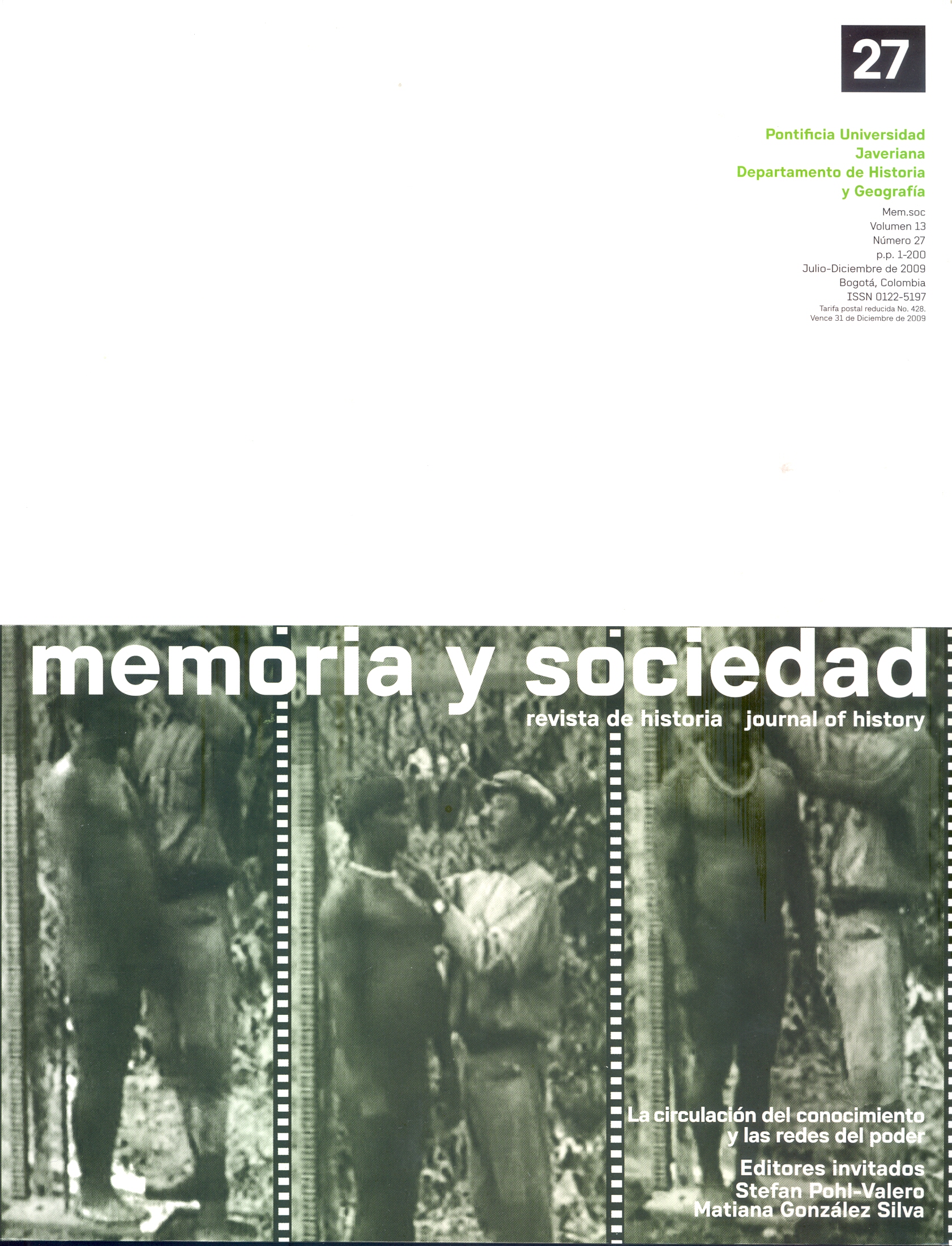Abstract
This article discusses the emergence of empirical practices in the context of the sixteenth-century Spanish American empire. My thesis is simple: the commercial and imperial expansion of Spain in America (as well as the expansion of other European kingdoms afterwards) fostered the creation and institutionalization of empirical practices for the study of the natural world. This was a significant event that has not yet been well understood in history of science. In the traditional historiography of the history of science the emphasis has been placed on the European social mechanisms that helped to establish empirical practices. It does not consider the American experience central in the understanding of the emergence and institutionalization of those practices; I argue that the American experience was central in the development of modern science. This article studies the creation of questionnaires and expeditions not only as part of state formation but also as part of the development of modern science.The journal Memoria y Sociedad is registered under a Creative Commons Attribution 4.0 International Public License. Thus, this work may be reproduced, distributed, and publicly shared in digital format, as long as the names of the authors and Pontificia Universidad Javeriana are acknowledged. Others are allowed to quote, adapt, transform, auto-archive, republish, and create based on this material, for any purpose (even commercial ones), provided the authorship is duly acknowledged, a link to the original work is provided, and it is specified if changes have been made. Pontificia Universidad Javeriana does not hold the rights of published works and the authors are solely responsible for the contents of their works; they keep the moral, intellectual, privacy, and publicity rights.
Approving the intervention of the work (review, copy-editing, translation, layout) and the following outreach, are granted through an use license and not through an assignment of rights. This means the journal and Pontificia Universidad Javeriana cannot be held responsible for any ethical malpractice by the authors. As a consequence of the protection granted by the use license, the journal is not required to publish recantations or modify information already published, unless the errata stems from the editorial management process. Publishing contents in this journal does not generate royalties for contributors.

